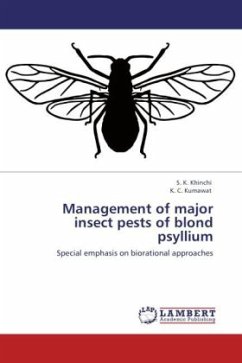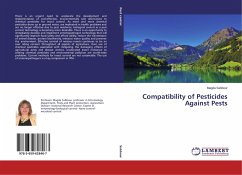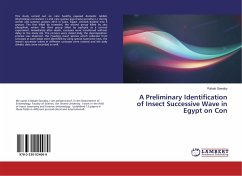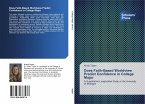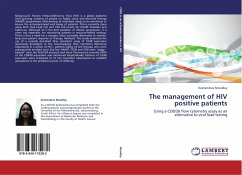The aphid, Rhopalosiphum maidis (Fitch) was found as a major insect pest of blond psyllium and ladybird beetle, Coccinella septempunctata Linn. was recorded as a major predator of this pest. The population of aphid (peaked in IInd week of Feb.) and ladybird beetle showed non-significant correlation with maximum and minimum temperature, whereas, significant positive correlation with RH. The avoidable loss due to aphid was 49.01%. The minimum incidence of aphid was observed in early sown crop (7th Nov.) (25.18 aphids/ tiller) and maximum on 28th November sown crop. Genotype RI-9808 was least susceptible to the aphid. The highest BC ratio (39.51) was obtained from plots treated with dimethoate 0.03 per cent followed by acephate 0.037 per cent (36.92) and imidacloprid 0.005 percent (24.84). Dimethoate (0.03%) was highly toxic while NSKE, KSE, Beauveria bassiana and Metarrhizium anisopliae were proved least toxic. Highest response to development of ladybird beetle was found in naturaldiet E (R. maidis) followed by diet D (semi-synthetic). In the field utilization study of lady bird beetle, the highest yield was found in level 2 PACS/ 5 plants with higher reduction of aphids.
Bitte wählen Sie Ihr Anliegen aus.
Rechnungen
Retourenschein anfordern
Bestellstatus
Storno

